Persistent droughts and heightened risk of floods in southern Africa
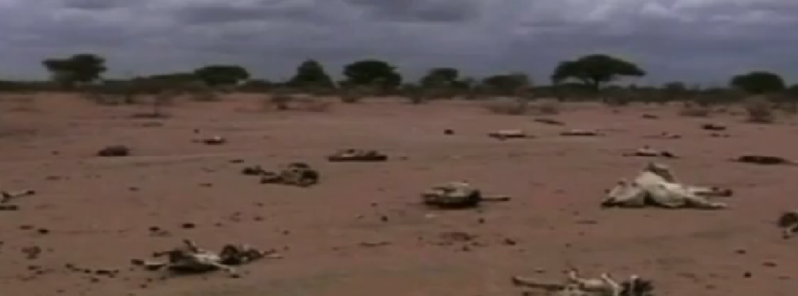
Continuous lack of rainfall since October 2015 caused a severe drought across the affected portions of southern Africa while persistent heavy precipitation in other areas continues to threaten with flooding, the Famine Early Warning Systems Network (FEWS NET) announced on February 5, 2016.
Severe drought conditions continue over parts of the Free State, North West Provinces of South Africa, Zimbabwe, and central and southern Mozambique. Significantly below average seasonal rainfall have already caused reduced water availability, damage to crops, delayed planting and livestock deaths,
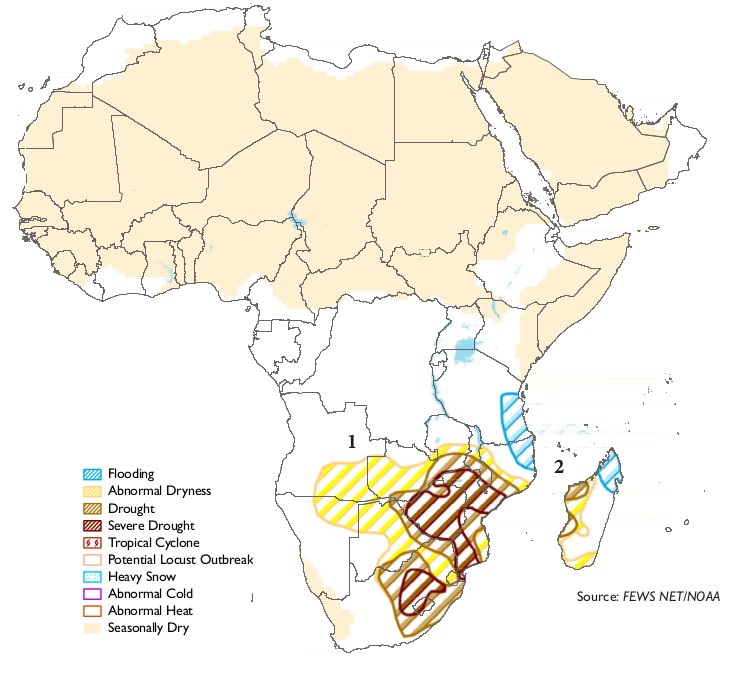
Image credit: FEWS NET/NOAA
On the other hand, more heavy rainfall will continue to batter northern Madagascar, northern Mozambique and southern Tanzania. FEWS NET warns the abundant precipitation will likely cause swelling of streams and rivers inundation of the already water-saturated grounds.
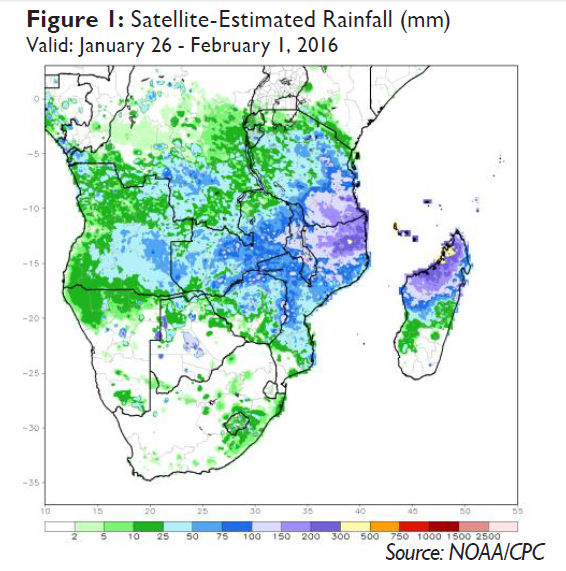 Last week, the rains were distributed in a more widespread fashion. The highest weekly rainfall accumulation surpassing 200 mm (7.9 inches) was recorded in southern Tanzania, northern Mozambique, parts of central Mozambique and northwestern Madagascar. Moderate to heavy rains were reported in Zimbabwe, Zambia and central Tanzania while lesser precipitation amounts were observed in parts of Angola, northern Namibia, South Africa and southern Madagascar.
Last week, the rains were distributed in a more widespread fashion. The highest weekly rainfall accumulation surpassing 200 mm (7.9 inches) was recorded in southern Tanzania, northern Mozambique, parts of central Mozambique and northwestern Madagascar. Moderate to heavy rains were reported in Zimbabwe, Zambia and central Tanzania while lesser precipitation amounts were observed in parts of Angola, northern Namibia, South Africa and southern Madagascar.
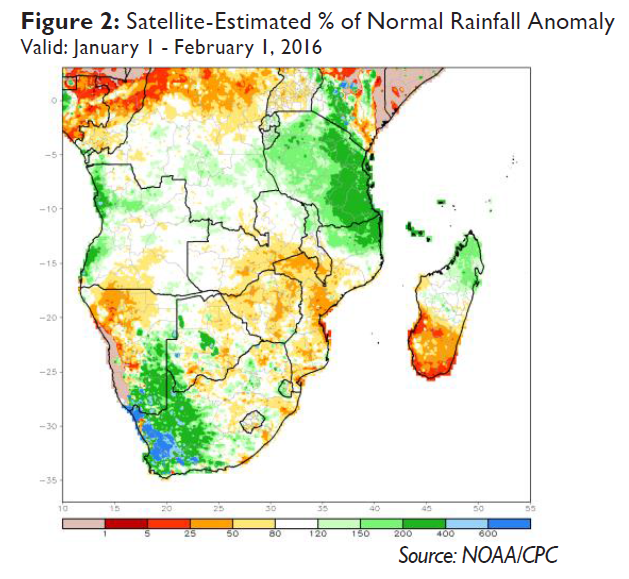
Persistent drought continues
Large portions of Botswana and South Africa still records below average amounts of rainfall. The most significant rain deficit was observed over western Madagascar, southern Zambia, central and western Mozambique.
Infrequent and low amounts of precipitation across parts of the Free State and North West Provinces of South Africa are beginning to produce a negative impact on the ongoing cropping activities across the regions.
Video credit: Al Jazeera
Numerous regions in eastern Zimbabwe and Mozambique are still reporting less than a quarter of their average rainfall since January 2016, despite last week's rain intensification. A rapid increase in moisture deficit has been recorded across these regions as the usual monsoon rainfall is higher and more frequent when compared to other parts of southern Africa.
Approximately 14 million people in southern Africa are currently facing hunger, and these number are expected to rise during 2016, according to the World Food Programme.
"Worst affected in the region by last year’s poor rains are Malawi (2.8 million people facing hunger), Madagascar (nearly 1.9 million people) and Zimbabwe (1.5 million) where last year's harvest was reduced by half compared with the previous year because of massive crop failure," the WFP stated.
Heavy rainfall could lead to flooding
Southern Angola and portions of the South Africa's Maize Triangle have reported positive changes in vegetation health conditions during late January.
Increased and more frequent rainfall was reported across large parts of Angola and South Africa in January 2016, as the, usually earlier monsoon associated rainfall, finally set in.
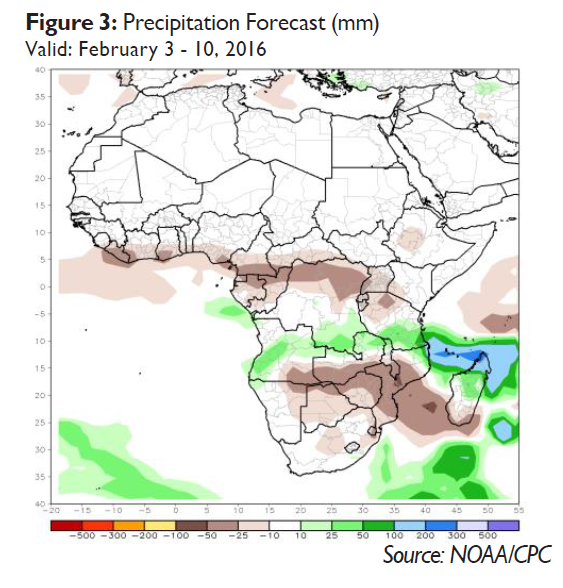
According to the forecast, the heavy rainfall over southeastern Africa is set to continue throughout the week, although the southern end is expected to move northward which will most likely again lead to abnormally dry conditions over Zambezi River basin and southern Madagascar.
Higher than average weekly rainfall accumulation above 200 mm (7.9 inches) has been forecast in coastal parts of northern Mozambique, southern Tanzania, and northern Madagascar where flooding conditions will likely arise.
Featured image credit: Al Jazeera

Commenting rules and guidelines
We value the thoughts and opinions of our readers and welcome healthy discussions on our website. In order to maintain a respectful and positive community, we ask that all commenters follow these rules.